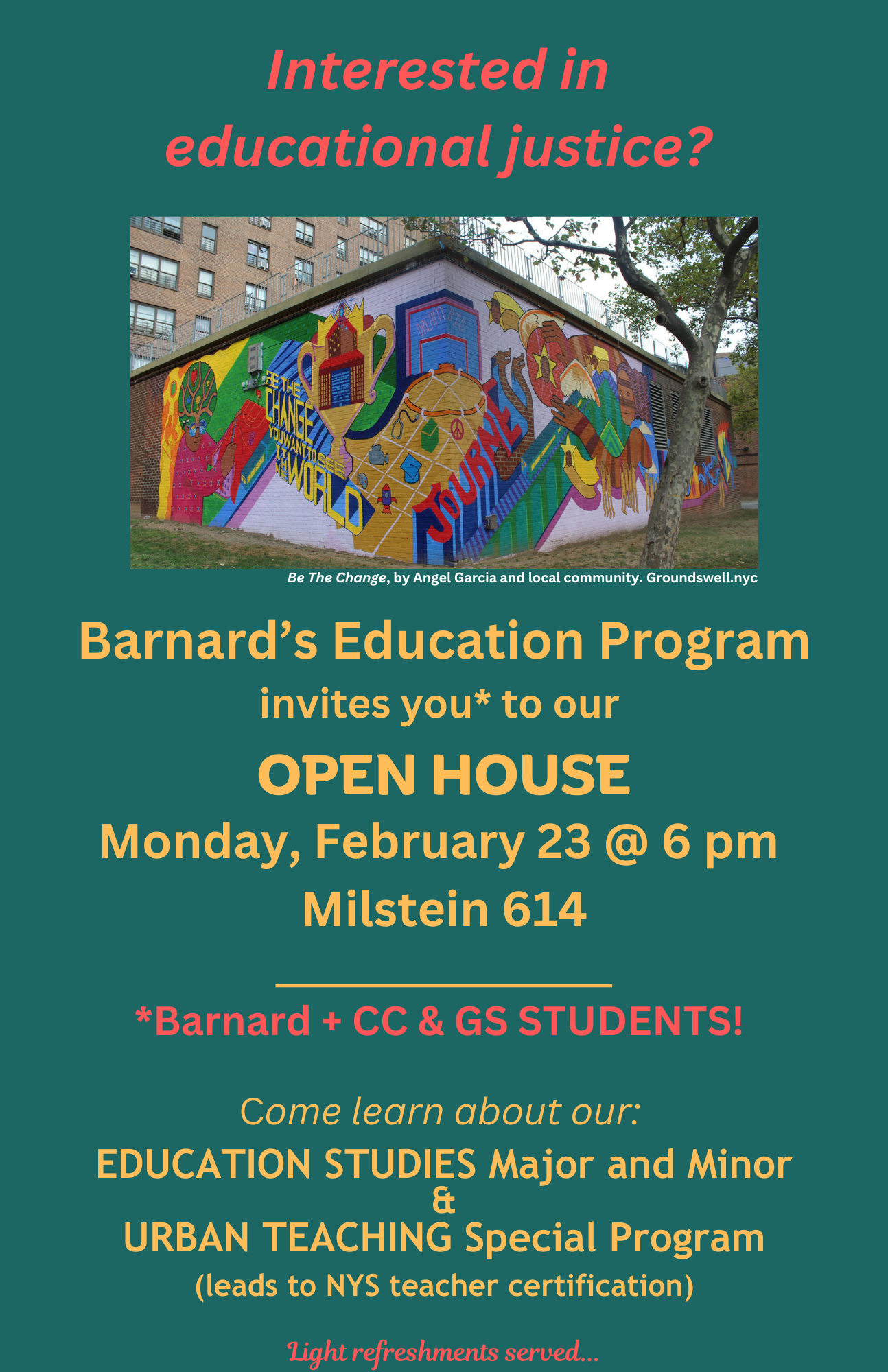News and Events
News and Events
Open Houses
OPEN HOUSE, Monday, FEB. 23 - BLIZZARD UPDATE!
Our Open House is still taking place - but remotely!
Please join us @ 6 pm on Zoom: Education Program Open House
*********************************************************************************
Please join us for our spring semester Open House this coming Monday, Feb 23rd, 2026 @ 6pm, in Milstelin 614. Barnard, CC and GS students welcome! Majors and minors are open to all.
Details here:

Urban Teaching Applications
We are now accepting Urban Teaching Applications from current sophomores. Anyone with interest in applying to the program should email education@barnard.edu. This page will be updated shortly with precise timelines. In the meantime, please visit our Urban Teaching page to learn more about our teacher certification tracks and how to apply. Completed applications should be submitted via the Google form.